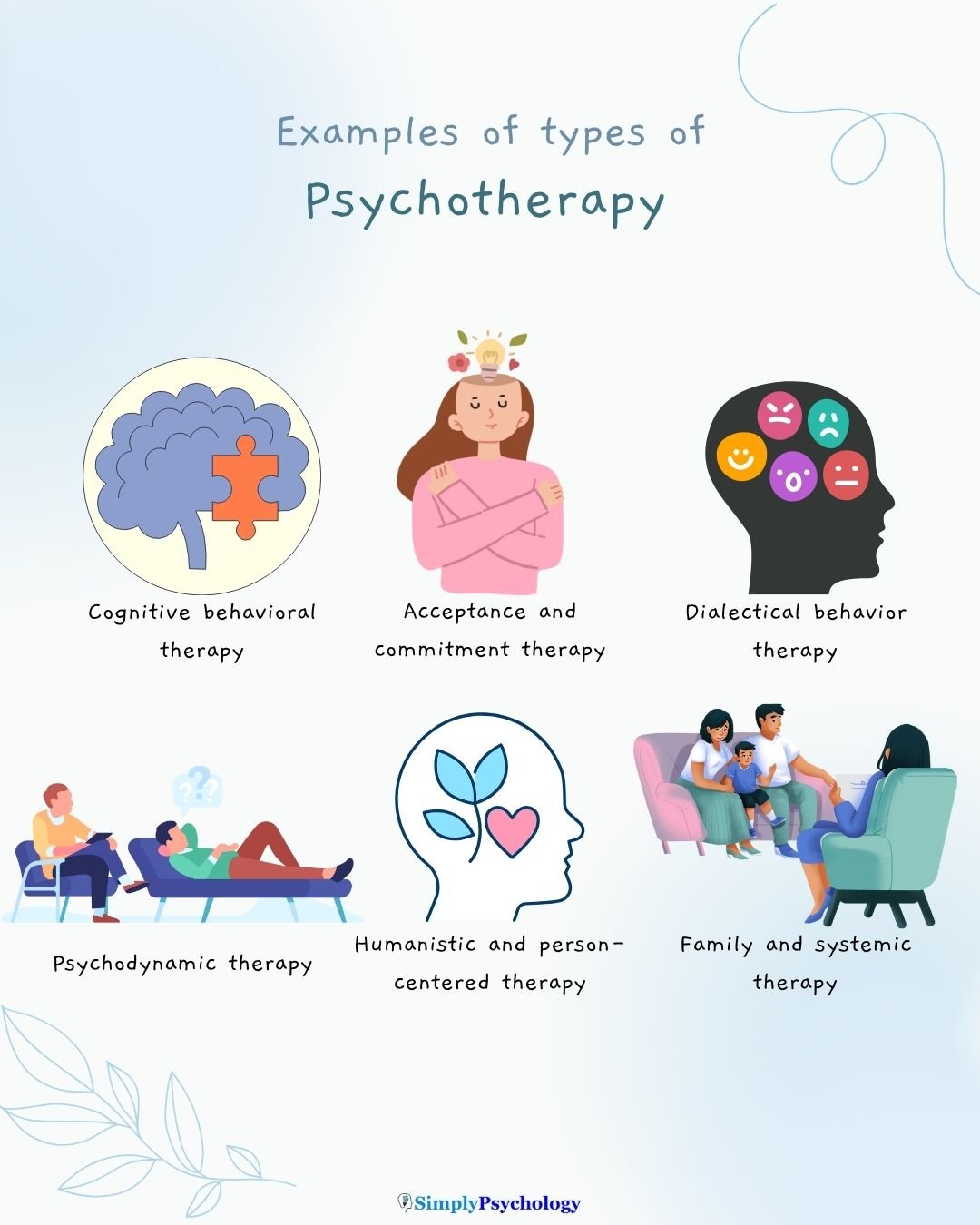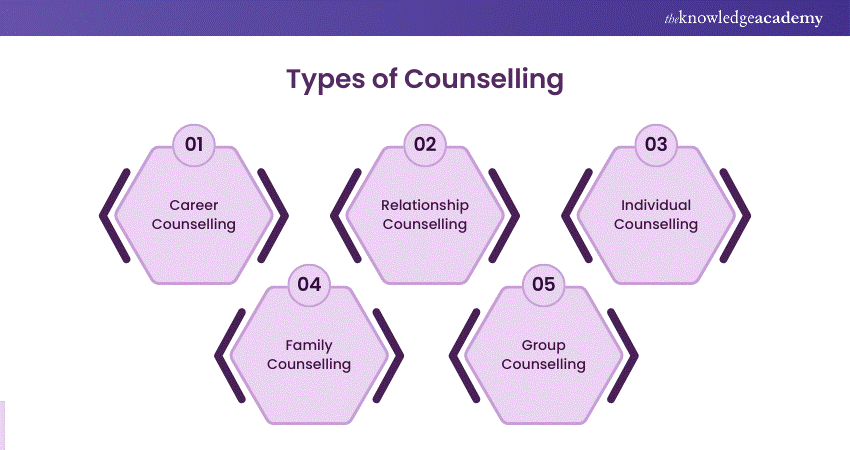A Comprehensive Guide to the Different Sorts Of Therapy and Their Influence
Counseling incorporates a selection of therapeutic strategies, each designed to meet distinct mental health needs. From the organized strategies of Cognitive-Behavioral Treatment to the understanding nature of Person-Centered Treatment, these techniques provide distinct pathways to personal development. Household treatment and Dialectical Habits Therapy offer additional structures for recovery, while group counseling cultivates area support. Recognizing these varied techniques can illuminate their extensive influence on individual well-being. What continues to be to be checked out are the complexities of each approach.

Understanding Cognitive-Behavioral Therapy (CBT)
Although many healing approaches exist, Cognitive-Behavioral Therapy (CBT) stands out due to its structured, goal-oriented nature. This form of therapy is based on the premise that thoughts, sensations, and behaviors are adjoined, and by transforming negative idea patterns, people can alter their psychological responses and actions. CBT utilizes numerous techniques, such as cognitive restructuring, which assists customers recognize and challenge altered ideas. Behavioral activation encourages involvement in pleasant activities to deal with clinical depression.
Generally, CBT is a temporary therapy, often long lasting between 12 to 20 sessions, making it obtainable for those seeking quick results. Its efficiency has been well-documented in dealing with stress and anxiety problems, anxiety, and various other psychological wellness concerns. The specialist's duty is to assist customers via workouts and research jobs, promoting self-awareness and promoting lasting coping approaches. This functional method encourages individuals to take control of their mental wellness, ultimately leading to boosted life fulfillment.
Exploring Person-Centered Therapy
Person-Centered Treatment, established by Carl Rogers, supplies a different approach to Cognitive-Behavioral Treatment by emphasizing the customer's subjective experience. This therapeutic design prioritizes the individual's perspective, cultivating an atmosphere of compassion, genuine positive regard, and credibility. By enabling clients to discover their sensations and thoughts without judgment, specialists facilitate personal development and self-discovery.
The core tenet of Person-Centered Therapy is the belief that individuals possess the intrinsic ability for self-healing and personal growth. In this setting, the specialist works as an encouraging guide as opposed to a regulation authority, encouraging clients to organize their own journey. This strategy is particularly reliable for those coming to grips with issues such as reduced self-worth, anxiousness, or clinical depression, as it equips them to challenge and understand their feelings. Ultimately, Person-Centered Treatment grows a solid therapeutic alliance, promoting depend on and visibility important for significant modification.
The Duty of Family Members Treatment in Recovery
Family treatment functions as an important component in the recovery procedure for people and their relationships. This restorative approach concentrates on enhancing communication, resolving disputes, and promoting much deeper connections among member of the family. By dealing with inefficient dynamics, household therapy encourages each member to express their thoughts and feelings in a safe environment, promoting understanding and compassion.

The influence of family members treatment extends beyond the sessions, as improved relationships can result in improved emotional wellness for all included. Generally, family therapy plays an essential duty in healing by promoting unity, resilience, and mutual support amongst member of the family, inevitably guiding them towards a much healthier, much more meeting life together.
Unpacking Dialectical Behavior Modification (DBT)
Building on the structure of restorative methods that enhance psychological wellness, Dialectical Behavior modification (DBT) uses an organized framework for individuals battling with extreme emotions and behavioral difficulties. Developed by Marsha Linehan, DBT integrates cognitive-behavioral methods with mindfulness techniques, aiming to aid customers manage overwhelming sensations and improve interpersonal performance.
The treatment is especially advantageous for those diagnosed with Borderline Individuality Condition but is also relevant to a variety of other psychological health and wellness issues. low cost therapy. DBT includes private therapy sessions and abilities training groups, concentrating on four key capability: mindfulness, distress tolerance, feeling policy, and social efficiency
The Advantages of Group Coaching Sessions
While specific therapy gives useful insights, group therapy sessions provide unique benefits that can considerably enhance the restorative experience. One important benefit is the feeling of area that emerges among individuals. People frequently discover convenience in sharing their experiences with others dealing with similar obstacles, promoting an encouraging environment that minimizes sensations of isolation.
Team sessions encourage diverse point of views, permitting participants to learn from each other's coping methods and understandings. This collective wisdom can result in improved analytic abilities and a wider understanding of personal problems.
In addition, team therapy frequently promotes responsibility, as members inspire one an additional to seek their objectives and stick to their dedications. Finally, the cost-effectiveness of group therapy makes it an available choice for several people looking for assistance. On the whole, the joint nature of team therapy sessions can greatly improve the healing trip.
Regularly Asked Concerns
What Certifications Do Therapists Need to Exercise Counseling?
Therapists typically call for a pertinent level in psychology or counseling, along with monitored medical experience. Additionally, they must get ideal licensure or qualification get more info to practice legally, ensuring adherence to professional criteria and honest guidelines.
Just how Do I Pick the Right Type of Therapy for Me?
Picking the ideal type of therapy includes reviewing individual demands, discovering different approaches, taking into consideration therapist specializeds, and looking for recommendations. Recognizing private objectives and preferences can greatly boost the effectiveness and fulfillment of the restorative experience.

Are Online Therapy Sessions as Effective as In-Person Ones?
The performance of on the internet therapy sessions compared to in-person ones frequently relies on private choices and scenarios. Research shows that both approaches can produce favorable results, though some might discover greater convenience in face-to-face communications.
For How Long Does Therapy Normally Last?

What Should I Expect Throughout My Initial Counseling Session?
During the initial counseling session, clients can anticipate an introduction, discussion of their issues, facility of objectives, and an overview of the counseling process - couples counselling. This initial meeting aims to build rapport and warranty comfort